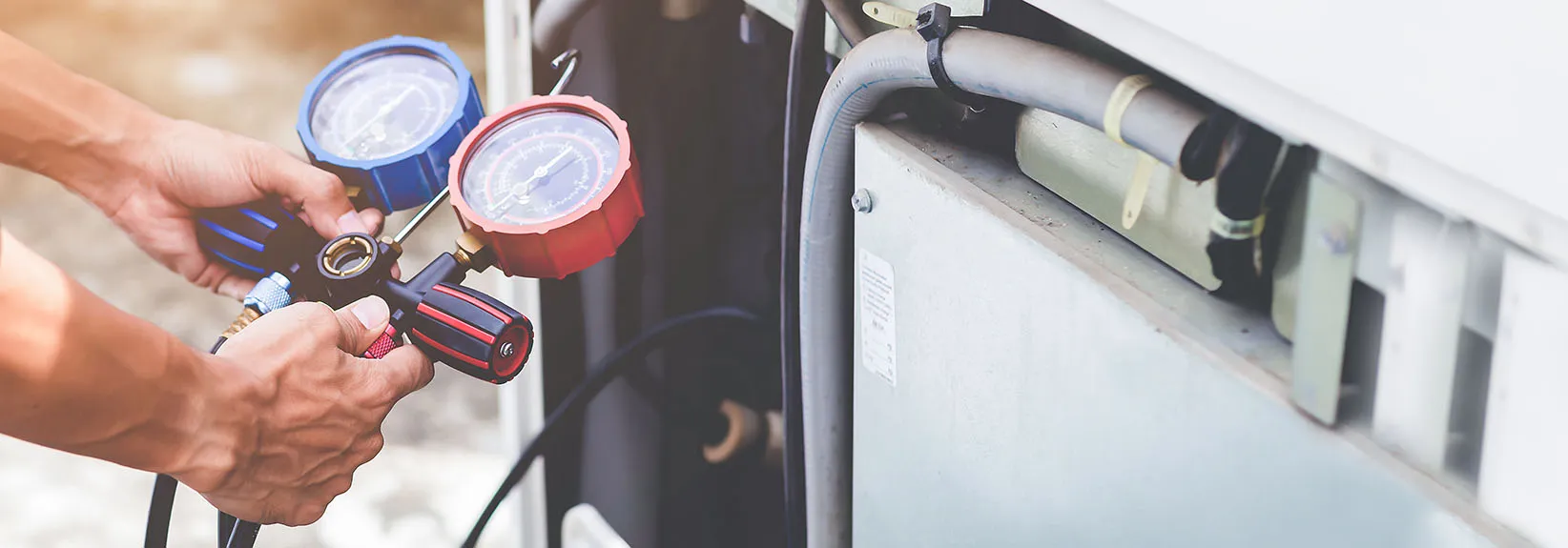Seven Most Common AC Problems and How to Fix Them
When your home’s cooling malfunctions, you deserve to get the issue dealt with as soon as possible. However, there could be dozens of reasons why your air conditioner isn’t functioning properly. How do you know which one is causing trouble? There are a number of problems that are more prevalent, and recognizing what they are is handy when your Service Experts Heating & Air Conditioning Expert is discussing routes for fixing the problem through air conditioning repair in North America.
Here are the top six common air conditioner problems that can cause your air conditioning to break down.
1. Thermostat Problems
Your thermostat directs your air conditioner when to start and for how long to run. If its settings are inaccurate, your cooling may not run properly. And if the batteries died in a programmable thermostat, it won’t be accessible at all. Follow this brief checklist to ensure your thermostat is receiving power and operating properly:-
- Swap out batteries if the screen is blank (programmable models)
-
- Make sure your thermostat has power (smart models)
-
- Verify that it’s switched to cooling mode
-
- Ensure your preferred temperature is below the current room temperature
2. Dirty Air Filter
Dirty or inefficient air filters are infamous for turning a perfectly functional and reliable air conditioner into a slow and inefficient one. In addition, dirty filters will sometimes cause multiple problems, like decreased airflow, reduced indoor air quality and excessive power use. They can also make your air conditioning work harder and stop working if the coil freezes. You can easily minimize AC problems by routinely cleaning or replacing the air filter. How do you know if you should change the filters? If you can’t remember the last time you changed them, it’s almost surely time to. But for a standard recommendation, make sure you try to replace flat filters each month and pleated filters every three months.3. Frozen Condenser Coils
Your air conditioner’s coils are crucial components because they discharge heat from your home into the outdoor air. But even during the summer, ice can develop on the coils. Frozen coils won’t be able to handle the cooling process as smoothly, and in severe cases the ice can block the AC from running outright. Freezing can be connected to different issues, like:-
- Dirty coils caused by insufficient annual maintenance
-
- Dirty air filters, which obstruct airflow
-
- Clogged drain line, which can cause moisture buildup
-
- Refrigerant leaks, which lessen cooling power
4. Refrigerant Leak
Your air conditioner employs refrigerant to convert heat. When it doesn’t have adequate refrigerant, you might notice you’re getting a lot of hot air. Here are some signs you’re facing a leak:-
- Not enough cold air
-
- Home feels humid
-
- Excessively long cooling cycles
-
- Frozen evaporator coils
-
- Bubbling or hissing air conditioner sounds
-
- Sweet smell close to the air conditioner
5. Water Leak
Your air conditioner needs a condensate drain line to flush water it strips from the air. If you’ve overlooked air conditioning maintenance, this drain can become clogged with mold and cause water to stay in the drain line. If this happens, you’ll notice water leaking. Switch off your air conditioner to avoid damage and contact us at 866-397-3787 for assistance.6. Tripped Circuit Breaker
There can be a number of reasons why your cooling won’t stop tripping its circuit breaker. Here are several of the most common ones:-
- Dirty air filter is significantly constraining airflow.
-
- Your air conditioner overheated caused by a lack of refrigerant.
-
- Condenser coils are dirty and restricting airflow.
-
- Condenser fan motor has malfunctioned and coils are overheating.
-
- Electrical connections are damaged or loose.
-
- Blower motor is faulty.
-
- Compressor is drawing excessive power or wiring is defective.
-
- Capacitor in control of starting the compressor has broken down.
